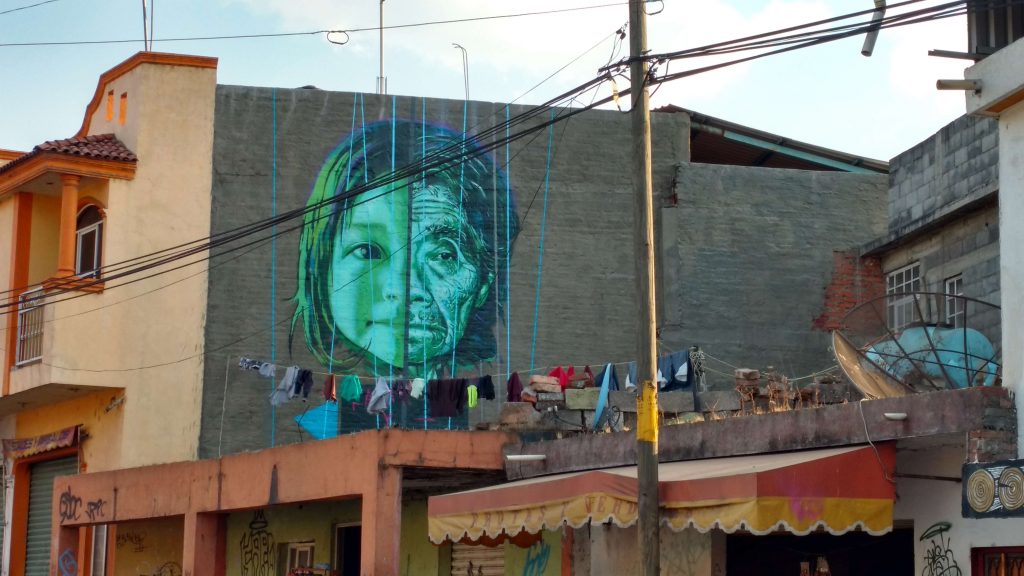Why I Can’t Hold Space for You Anymore, a self-examination exercise
Vanessa Andreotti, Sharon Stein, Elwood Jimmy and the GTDF collective

Photo by: Vanessa de Oliveira Andreotti
Systemic violence is complex and multi-layered. One thing that cuts across layers is the disproportionate amount of labour that Black, Indigenous and people of color (BIPOC) bear when they are expected to teach other people about systemic colonial and racial violence in equity, diversity and inclusion (EDI) initiatives.
The exercise “Why I can’t hold space for you anymore” was created by the Gesturing Towards Decolonial Futures Arts/Research Collective, of which we are part. It presents an attempt to pedagogically address unconscious patterns of problematic behavior at work in EDI initiatives that are difficult to name and to interrupt.
The exercise consists of a poem and an invitation for self-examination. The poem lists the reasons why symbolic EDI statements and gestures are often costly for the well-being of BIPOC people.
This exercise was developed as part of an effort to illustrate the emotional and physical costs that manifest when BIPOC people are expected to hold spaces for institutional learning – especially white peoples’ learning – about complicities in historical, systemic and ongoing harm.
Read the poem once and pay attention to the different kinds of responses it evokes in you. After you have read the poem once, read the instructions that follow for the second part of the exercise.
Do You Really Want to Know Why I Can’t Hold Space for You Anymore?
Because
You see my body as an extension of your entitlements
Because
I have held space for you before
and every time, the same thing happens
You take up all the space
and expect me to use my time, energy and emotion
in service of fulfilling your desires:
to perform my trauma
to affirm your innocence
to celebrate your self-image
to center your feelings
to absolve you from guilt
to be always generous and generative
to filter what I say in order not to make you feel uncomfortable
to validate you as someone who is good and innocent
to be the appreciative audience for your self-expression
to provide the content of a transformative learning experience
to make you feel loved, important, special and safe
and you don’t even realize you are doing it
and you don’t even realize you are doing it
AND YOU DON’T EVEN REALIZE YOU ARE DOING IT
Because your support is always conditional
On whether it aligns with your agenda
On whether it is requested in a gentle way
On whether I perform a politics that is convenient for you
On whether it fits your personal brand
On whether it contributes to your legacy
On whether you will get rewarded for doing it
On whether it feels good
Or makes you look good
Or gives you the sense that we are “moving forward”
Because when you ‘give’ me space to speak
It comes with strings attached about
what I can and cannot say
and about how I can say it
You want an easy way out
A quick checklist or one-day workshop
on how to avoid being criticized
while you carry out business as usual
And even when I say what I want to say anyway
You can’t hear it
Or you listen selectively
And when you think you hear it
You consume it
You look for a way to say ‘that’s not me’
‘I’m one of the good ones’
and use what I say to criticize someone else
Or you nod empathetically and emphatically to my face and then
The next thing you do shows that while you can repeat my words
Your perceived entitlements remain exactly the same
And when I put my foot down or show how deeply angry or frustrated I am
You read me as ungrateful, incompetent, unreliable and betraying your confidence
You complain behind my back that I’m creating a hostile environment
You say I’m being unprofessional, emotional, oversensitive
That I need to get over it
That I’m blocking progress
That I shouldn’t be so angry
That my ancestors lost the battle
That not everything is about colonialism or racism or whiteness
That aren’t we all just people, in the end?
That we are all indigenous to some place
That you feel really connected to the earth, too
That you have an BIPOC friend/colleague/girlfriend that really likes you…
You minimize and further invisibilize my pain
Your learning
your self-actualization
your credibility
your security
and your social mobility
always come at my expense.
That is why I can’t hold space for your anymore.
After you have read the poem once, we invite you to read it again (one or more times) as an exercise of observation of your own neurophysiological responses. In this part of the exercise, we use a psychological narrative strategically to focus your attention on the responses of your amygdala, which is the part of the brain that stores information about emotional events and that manages situations of perceived threat.
In modern societies, our brain is trained to minimize threat and maximize reward. If something is perceived as a threat to one’s self-image, status, autonomy or security, the amygdala is triggered, prompting the responses of fight, flight, freeze and/or fawn (i.e. to please).
As you read the poem again, identify the parts of yourself that are engaged in these patterns of response:
fight(defensiveness) |
flight(avoidance) |
freeze(feeling lost and helpless) |
fawn(trying to please) |
· denying· arguing· explaining· dominating discussion· delegitimizing/ discrediting· claim of being attacked· claim of objectivity (only you can see the truth)· insistence that it does not apply to you since you have (or have had) multi-ethnic friends or family members that can attest that you are a nice person |
· withdrawing· getting distracted· focusing on your intentions· insistence that you are misunderstood· arguing over words meanings or other details· offering counter-examples· use other forms of oppression (e.g. class, sexism, cis-hetero-normativity) to minimize the importance of race and colonialism |
· crying· numbing· deflecting· exiting· getting distracted· changing the subject· distancing· detaching· divesting· despairing· disconnecting |
· seeking absolution· self-flagellation· martyrdom· over-complimenting BIPOC people· seeking proximity· seeking praise· virtue-signaling· demanding attention· demanding validation (e.g. “I am one of the good ones”)· pretending to go along to get along (or to protect your image/interests) |
As you identify these responses, document (in writing or drawing) how they manifest. Next, consider the fears, insecurities, and desires that could be behind these responses, and how these fears, insecurities, and desires could be unconsciously driving your actions and relationship building with BIPOC persons and communities.
Pause to consider:
-
the costs of these patterns in the long run both for the well-being of BIPOC people and for the depth and sustainability of the relationships you build;
-
what you would need to unlearn to enable healthier and more generative relationships with people from BIPOC backgrounds;
-
how you might be expecting BIPOC people to hold space for your unlearning and have patience with your inevitable mistakes;
-
how this expectation places a demand on BIPOC people’s time and labour, and requires them to re-live painful and traumatic experiences and frustrations;
-
how the labour that is expected of BIPOC people could be better acknowledged, rewarded, and better yet, (re)distributed in your institutional context.
Finally, consider how the “Fragility Questions” below can help you go deeper, recognizing that this exercise is only a starting point in an ongoing, life-long process of historical and systemic undoing, unlearning, and disinvesting from harmful cognitive, affective, and relational patterns.
Fragility Questions:
-
What do you expect, what are you afraid of, what prompts defensiveness? Who is this really about?
-
What underlying attachments may be directing your thinking, actions and relationships?
-
What cultural ignorances do you continue to embody and what social tensions are you failing to recognize?
-
What truths are you not ready, willing, or able to speak or to hear? What fantasies/delusions are you attached to?
-
What fears, perceptions, projections, desires and expectations could be informing (consciously and unconsciously) what you are doing/thinking? How may these things be affecting your relationships in negative ways?
-
Where are you stuck? What is keeping you there? How can you distinguish between escapist distractions and the work that needs to be done?
-
How do we learn to surrender perceived entitlements and underlying desires that become a barrier to our ability to have difficult conversations and go into difficult spaces together, without relationships falling apart?
-
How can being overwhelmed and disillusioned be productive?
-
What do you need to give up or let go of in order to go deeper? What is preventing you from being present and listening deeply without fear and without projections?


Leave a Reply
You must be logged in to post a comment.